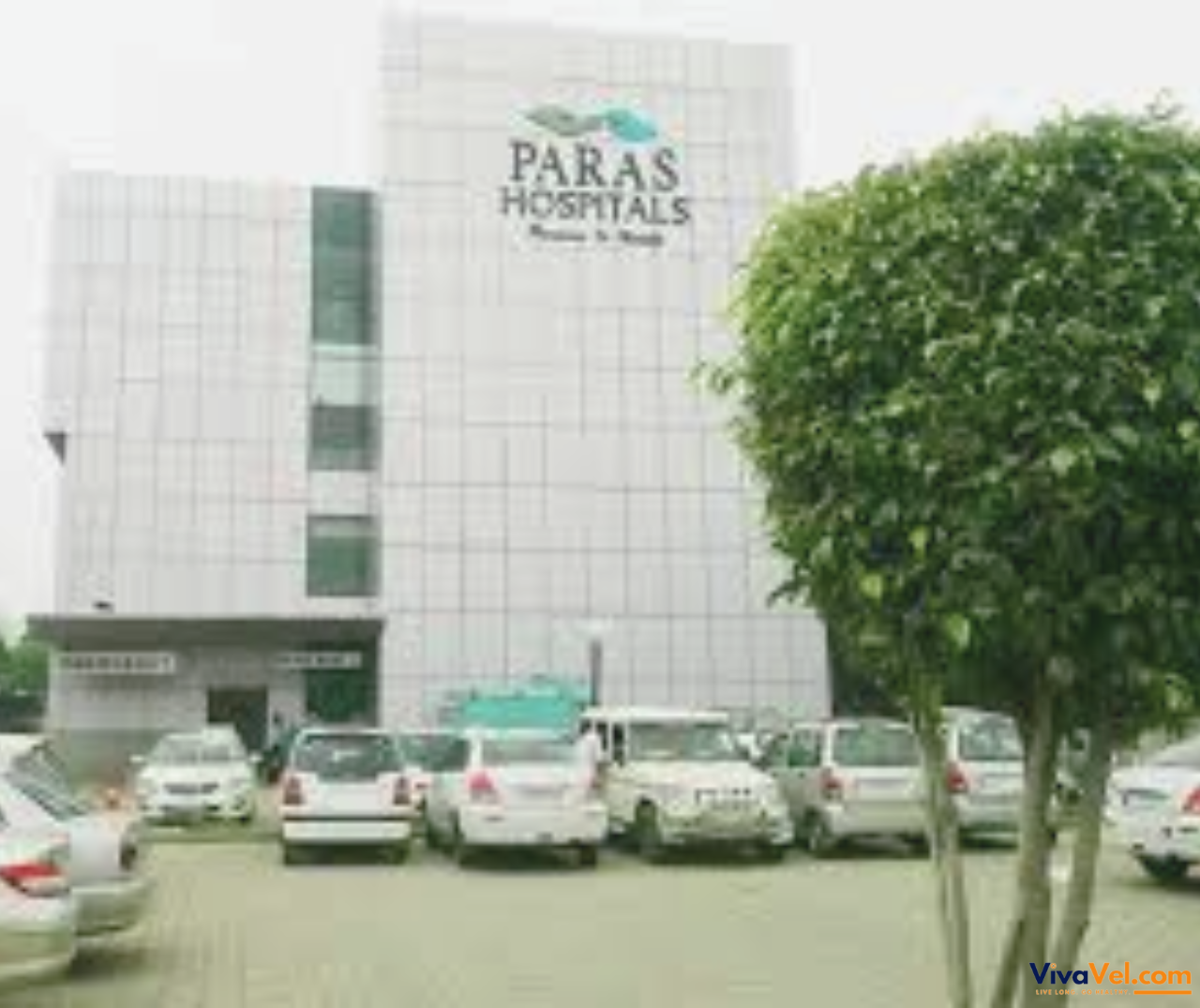info@vivavel.com
+919818262686
+919818262686
 info@vivavel.com
info@vivavel.com +919818262686
+919818262686Prostate cancer is a common type of cancer that develops in the prostate gland, which is a small organ in men responsible for producing seminal fluid. This cancer usually affects older men and is one of the most frequently diagnosed cancers in men.
In many cases, prostate cancer grows slowly and may not cause immediate health problems. Symptoms can include difficulty urinating, blood in the urine, or discomfort in the pelvic area. Some men may not experience symptoms until the cancer has advanced.
If detected early, prostate cancer is often treatable and can be managed successfully. Treatment options include surgery, radiation therapy, hormone therapy, or sometimes just active Surveillance to monitor the cancer's growth. Regular screenings, such as a PSA (Prostate-Specific Antigen) test, can help in early detection.
Living a healthy lifestyle and staying informed about your risk factors, like age and family history, can also help lower the chances of serious complications from prostate cancer.
 In the early stages, prostate cancer may not cause any symptoms. As it progresses, some common signs may include:
In the early stages, prostate cancer may not cause any symptoms. As it progresses, some common signs may include:
Difficulty in starting or stopping urination
Weak or interrupted urine flow
Frequent urination, especially at night
Pain or burning during urination
Blood in the urine or semen
Painful ejaculation
Pain in the back, hips, or pelvis (if the cancer has spread)
Note: These symptoms can also be caused by other conditions, like an enlarged prostate, so it's essential to get them checked by a doctor.

 The exact cause of prostate cancer isn't clear, but it develops when cells in the prostate begin to grow uncontrollably. Several factors contribute to this abnormal growth, including:
The exact cause of prostate cancer isn't clear, but it develops when cells in the prostate begin to grow uncontrollably. Several factors contribute to this abnormal growth, including:
Genetic mutations: Changes in the DNA of prostate cells may lead to cancer.
Age: The risk of prostate cancer increases with age.
Hormones: Male hormones (androgens) like testosterone may play a role in its development.
 You should see a doctor if you experience any of the following symptoms:
You should see a doctor if you experience any of the following symptoms:
Difficulty or pain while urinating
Blood in your urine or semen
Persistent pain in your lower back, hips, or thighs
Any urinary changes that don't go away
Early detection through regular check-ups is crucial since many men with prostate cancer do not show symptoms initially.
 To diagnose prostate cancer, doctors may recommend the following tests:
To diagnose prostate cancer, doctors may recommend the following tests:
 PSA (Prostate-Specific Antigen) Test: A blood test that measures PSA levels, which may be elevated in men with prostate cancer.
PSA (Prostate-Specific Antigen) Test: A blood test that measures PSA levels, which may be elevated in men with prostate cancer.
 Digital Rectal Exam (DRE): The doctor inserts a gloved finger into the rectum to check for lumps or abnormalities in the prostate.
Digital Rectal Exam (DRE): The doctor inserts a gloved finger into the rectum to check for lumps or abnormalities in the prostate.
 Biopsy: If PSA levels are high or the DRE is abnormal, a small tissue sample is taken from the prostate to look for cancer cells.
Biopsy: If PSA levels are high or the DRE is abnormal, a small tissue sample is taken from the prostate to look for cancer cells.
 Imaging Tests:
Imaging Tests:
MRI or CT scans can provide detailed images to determine if cancer has spread.
Bone scans may be done if there are signs that the cancer has spread to the bones.
 Do's:
Do's:
Get regular check-ups: Especially after age 50 (or earlier if you're at higher risk).
Eat a healthy diet: Include fruits, vegetables, and whole grains. A diet low in fat and rich in omega-3 fatty acids (from fish) may help reduce the risk.
Exercise regularly: Physical activity helps maintain a healthy weight and supports overall health.
Stay informed: Learn about your condition and treatment options to make the best decisions for your health.
 Don'ts:
Don'ts:
Avoid smoking: Smoking can increase the risk of aggressive prostate cancer.
Don't ignore symptoms: If you notice any changes in your urinary habits or experience discomfort, see a doctor.
Limit alcohol: Excessive drinking may increase the risk of prostate cancer.
Disclaimer:
Our medical content authors have diligently gathered and synthesized information on this topic to offer valuable insights to our readers. Drawing from a range of reputable medical journals and health resources, this content aims to enhance understanding of the subject. It's essential to remember that while this information is informative, it should not replace personalized consultation or treatment from a qualified healthcare professional. For further details, please refer to our Editorial Policy.
For this topic, our authors used some of the following resources:
Mayo Clinic | Prostate Cancer: Symptoms & Causes
Cleveland Clinic | Prostate Cancer Overview
American Cancer Society | Prostate Cancer Information & Types





![]() Pusa Road, Radha Soami Satsang, Rajendra Place New Delhi, 110005 India
Pusa Road, Radha Soami Satsang, Rajendra Place New Delhi, 110005 India



![]() Budena Village, Sector 86, Faridabad, Haryana 121002, India
Budena Village, Sector 86, Faridabad, Haryana 121002, India



![]() Golf Course Rd, Parsvnath Exotica, DLF Phase 5, Sector 53, Gurugram, Haryana Gurgaon, 122022 India
Golf Course Rd, Parsvnath Exotica, DLF Phase 5, Sector 53, Gurugram, Haryana Gurgaon, 122022 India



![]() C-1, Sushant Lok- 1, Sector-43, Phase- I, Gurugram, Haryana, 122002
C-1, Sushant Lok- 1, Sector-43, Phase- I, Gurugram, Haryana, 122002


Dr. Pooja Agarwal stands out as one of the oncologists in Kolkata, specializing in breast cancer surgery. With over 10 years of experience, she has earned a reputatio...

Dr. Harsh Vardhan Atreya is a prominent Consultant Medical & Hemato-Oncologist specializing in Bone Marrow Transplantation. With training from esteemed institutio...

Dr. Imran Khan has joined Fortis Escorts in Okhla Road, New Delhi, as an Associate Consultant in Medical Oncology. He brings over 12 years of experience in oncology. ...

Dr. Harit K Chaturvedi heads the Max Institute of Cancer Care. He has been with Max Healthcare since 2009 and has worked hard to create one of the best cancer treatme...

Dr. Asit Arora is a highly regarded Surgical Gastroenterologist specializing in Gastrointestinal and Hepat-pancreato-biliary (HPB) surgery. He is based in the Delhi N...

Dr. Nikhil Agrawal is a distinguished Gastrointestinal (GI) and Hepato-Pancreato-Biliary (HPB) Surgical Oncologist, serving as the Director of GI-HPB Surgery and Oncology at ...
Treatment Plan & Cost within 2 days
